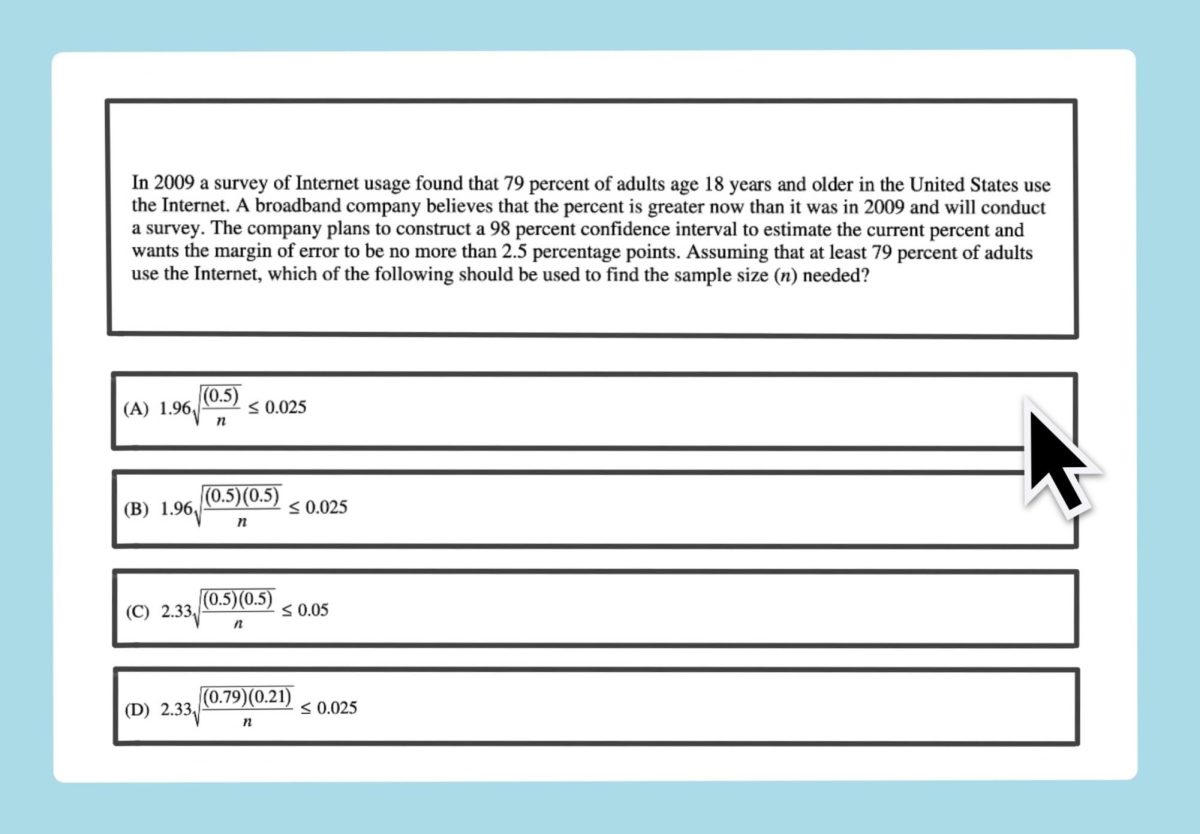Sweaty hands, racing heartbeat and a sense of dread and anxiety are all feelings I have had before taking a standardized or
“high-stakes” test. The thought of determining a student’s mastery of a subject based on the results of a single test is ridiculous. These days, however, students are tested often throughout the school year in excessive amounts.
Standardized testing doesn’t only judge students on their knowledge of the subject, but also how well they can problem solve and dissect the true question being asked. The questions are rarely clear on any of these tests, causing simple mistakes just because the purpose of the question was not as straightforward as it could have or should have been.
This focus on testing creates multiple problems. First, teachers not only have to teach the material, but also to invest time in teaching test-taking skills so that students can succeed on these cryptic tests. As a result of high-stakes testing, teachers must teach only the curriculum on the test and not try to expand students’ knowledge. Classes are not supposed to be centered around one test to judge everything students have learned in a year, but rather on the curriculum and how students do throughout the year at multiple intervals.
Second, high school students are already extremely stressed out. The choices of colleges, AP classes, extracurriculars and normal classes are enough of a burden for a teenager to bear. Success on End of Course Tests is irrelevant to the students’ actual understanding of their classes.The SAT and ACT are even worse. These analytical tests are used to judge how prepared students are for college, but in reality are just tests of memorization. None of these tests actually test students’ mastery of their courses.
When students do get a break from these tests critical to our future, they have to toil over other standardized tests that may not be as important but are just as demanding as the other tests. This year, new requirements for pre-tests and post-tests were implemented, along with the continuation of Student Learning Objective assessments.
During the first month of school, an excessive amount of class time was spent completing these futile tests which elicit no prior knowledge. Many students don’t even read the questions and just fill in the bubbles to show completion. The SLO and pre-tests don’t count for a grade for the students, but they do matter to the teachers and their evaluations.
In the past, we’ve seen the results of high-stakes testing on teachers; APS is still recovering from the 2009 cheating scandal. It seems a little early for a new superintendent to pressure students and teachers for high performance expectations on tests.
In addition to the stress on teachers and students and the extensive time used to take them, tests incur large costs. In 2012, a study by Brookings Institute estimated that the United States spends $1.7 billion a year on standardized testing. This money could be better spent on improving education in lower-income cities and areas, or giving teachers better resources.
The amount of standardized testing in the district and the country has reached an all-time high with an equally high cost, and it is completely unnecessary to have these tests be a standard part of our education.












